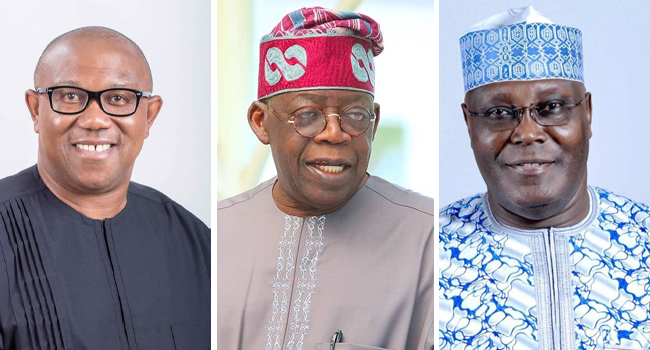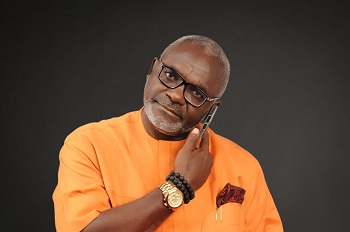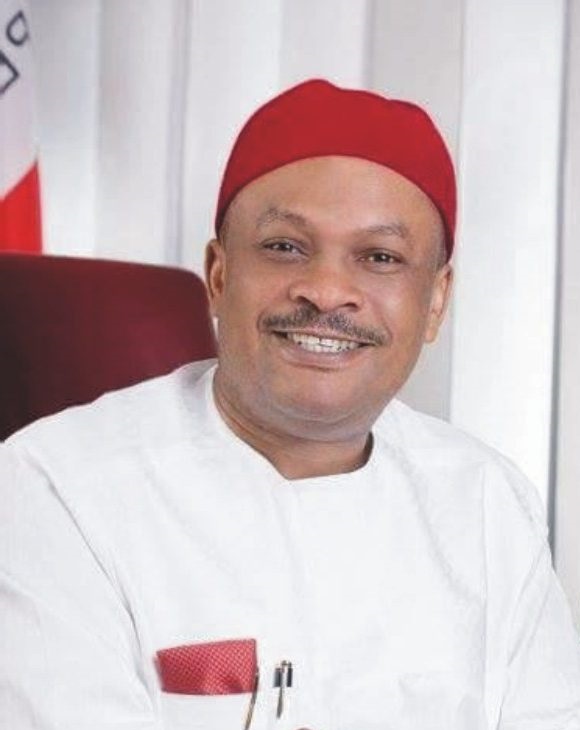
By Prof Obiaraeri, N.O
Now that the Respondents have filed their replies to the petitions by the Petitioners in the 2023 Presidential election, it is apposite (ad rem) to say that issues have been joined.
The numerous grounds of the respective Petitions submitted by the Petitioners for adjudication have presumably been traversed by the Respondents to the best of their abilities.
It remains for the parties to lead evidence in open Court.
The burden or onus of proof is now cast on he who alleged what on all the sides. Our law is that he who alleges must prove. He who does not prove what he alleged fails. He who does not debunk or controvert what has been proved also fails.
In view of the foregoing, it will be in the public interest to make clarifications on what the citizens are not required to do henceforth in order not to ambush the trial or prejudice the proceedings that are in court.
It is also crucial to enlighten the general public on what to expect in the end in these high profile election petitions.
One no go area is that legal pundits or analysts [there are too many of them online and offline including ignorant ones] are no longer free to discuss or hazard guesses as to whose petition or defence is watertight or whose case or defence is watery or has been dislodged.
This is because the Nigerian legal system frowns at prejudicial comments on matters that are under judicial consideration.
Comments on the merits or demerits of cases pending before a Court are sub judice and punishable as crime. No one is allowed the indiscretion of naked usurpation of judicial powers.
Going forward, the Tribunal/Court should be allowed to perform its constitutionally assigned role of adjudication. Nigerians can be rest reassured that the Courts will resolve all the contentious issues one way or the other with judicial finality.
Henceforth, all inimical comments or agitations either on the way INEC conducted the said election or pros and cons of either the petitions or replies in the petitions should cease.
Another intriguing feature in the petitions and replies filed before the Court of Appeal (sitting as the Presidential Election Tribunal) worthy of exposition is the caliber of the “armada” of lawyers on all the sides in the matter.
Some critics think that there are too many senior lawyers retained on all the sides in these petitions and as such see it a jamboree or intimidatory antics.
On the contrary, it is incumbent to opine in support that this is commendable for sundry reasons.
One is the employment generated and good fees to be earned from the conduct of the election petitions by the many lawyers retained in the cases.
It is a given that lawyers must survive the high cost of living in Nigeria. Lawyers need to pay wages, accessorize their Chambers with up-to-date or current professional and allied publications, resource materials (electronic and hardcopies) or accoutrements.
Of a truth, lawyers like to be briefed and it is best if the briefs are fat and perfected because it is easier to open an Oyster with bare hands than to get a lawyer to speak without fees.
Lest it gets twisted, as important as lawyers’ fees are, they are not the key reasons why many senior and junior lawyers appearing for parties in a matter in court is considered very salubrious.
The real reason is that it is good for the development of the law as the concourse of legal jurisprudence is enlarged by judicial decisions and only contested cases by legal juggernauts conduce to that. Election petitions are suis generis, they are in a class of its own and unique.
Absent accident of litigation, the cold letters of the law in the statute books will remain untested and there will be no binding legal precedents therefrom.
When cases are contested and judgments delivered in court on their merits, binding judicial precedents evolve.
It is through judicial pronouncements that either an entire legislation or specific legal provision(s) may be upheld or shot down.
Laws or provisions of laws that have received judicial imprimatur or survived fierce judicial scrutiny by reason of accident of litigation serve as calcified precedents.
Therefore, the appearances of many Senior and junior lawyers for parties in the presidential election petitions go beyond theatricals, dramatics, histrionics and melodrama of political pugilism.
It is not an ego trip. Indubitably, it denotes the fundamentality of the matter in dispute.
The presidential petitions are high profile political cases that command inquiry into novel issues or require weighty constitutional interpretations by the Tribunal.
As eminent and erudite advocates are now pitched against each other in the highly contentious Presidential Election Petition cases, one does not require extra courage to surmise that the stakes are definitely very high. Everything can figuratively be said to be in issue!
Like a typical world cup final match between two great footballing nations, everything is in issue- experience, currency of knowledge, tactical displays, technical dexterity, pre-emptive strikes, preparation, accuracy of delivery and ultimate victory.
Any tactical blunder or technical mistake can be very costly. Each opposing team treats the other with utmost respect and approaches the game with caution but a winner must emerge under the rules of fair play within the full time or after extra time or penalty shootout. It is never over until it is over in football.
One nearly forgot that not everyone is a football enthusiast and the caveat that though matters in Court for trial may be similar to football matches but they differ greatly. Unlike football matches, which sometimes depend on mother luck and not possession, cases in court do not depend on luck. They depend strictly on weight of credible evidence adduced and the applicable law.
Lawyers, law teachers, jurists, law students, lawmakers, policymakers and legal pundits look out for epic encounters involving the leading minds in the legal profession.
From such clashes of the titans, there is always something new to learn or some old things to be confirmed to be true.
The ongoing Presidential Election petitions present all of these pulsating possibilities and realities because this is the first time election petitions will be presented based on the provisions of the newly enacted Electoral Act, 2022.
There is no doubt that decisions from the Courts, especially the Court of Appeal and the apex Supreme Court, will help shape the operational dynamics and public understanding of the provisions of the nascent Electoral Act, 2022.
Needless to over-emphasise that sundry provisions of the Constitution of the Federal Republic of Nigeria, 1999 as amended, the Electoral Act, 2022 [and the INEC Guidelines for conduct of the general election made thereunder] fall to be interpreted and given their concrete legal meanings in the pending presidential election petitions.
Besides, after the petitions may have been decided with finality, the gray areas or lacunas in the electoral law (if any) requiring legislative amendments will also come to the fore.
The presence of many senior and highly experienced lawyers will help to formulate deep jurisprudential and legal issues for determination in the petitions. Consequently, the Courts, based on the weight of evidence and the law, will be able to dispassionately adjudicate the matters presented before it.
Public expectations from the Courts are very high. This does not require accentuation.
Not a few citizens are worried whether the Courts [Court of Appeal as Presidential Election Tribunal/Supreme Court] will be able to distil the issues and come to the justice of the cases.
There is no cause for alarm.
Beyond the legal fireworks by lawyers and associated histrionics and optics deliberately promoted by interested parties, in any trial in court and irrespective of the great assemblage of lawyers on any or both sides of a case, all that is needed is a courageous, patient, reasonable, logically aligned, eagle-eyed Judge or Panel of Judges/Justices to arrive at the justice of the case. The Oath of Office of Judicial Officers adequately prepares them to do justice to all without fear or favour.
A case presented in Court will be decided based on admissible cogent, convincing and credible evidence and not based on the number of lawyers [senior or old] on any or both sides. Besides, notwithstanding how many lawyers appearing in a matter for a given party, only one lawyer will conduct the case or address the Court at any given time.
The public needs to be reminded that no Judge is ever swayed or intimidated by the number of lawyers or “weight” of the lawyers in a matter. What goes into the scale of justice is admissible, cogent, credible and convincing evidence adduced before the Court in that particular case. That is the irreducible minimum.
At long last, the Court [the Presidential Election Tribunal in this instance] evaluates the evidence adduced before it to arrive at a decision one way or the other. The brilliance or beautiful arguments of lawyers in their final addresses will remain highly commendable but will not be enough to vacillate the judgment of the Court.
Hence, no Court of law is ever scared or threatened by the presence of many lawyers in a matter. Rather, the Court is always happy to have the informed input of lawyers in the conduct of a case (including the opinion of those it may choose to invite suo motu as amicus curiae) provided that will enrich the industry and ingenuity in the judgment.
Lawyers remain Ministers in the Temple of Justice while the Judge is the embodiment or oracle of the law. Lawyers are welcome to conduct their cases or canvass their opinions but the Court has the final say.
Hence, despite legal fireworks by lawyers, the Bar bows to the Bench.
Once judgment is delivered, everyone is bound to obey. Soon [and within 180 days of the date of filing the petition] when the judgment in the pending election petitions will be delivered by the Presidential Election Tribunal, the parties or litigants, the lawyers and members of the public are bound to intone “AS THE COURT PLEASES!”
Thereafter, any party/parties dissatisfied with the whole judgment or a part of it is constitutionally entitled to appeal to the Supreme Court.
The apex Supreme Court has a maximum of sixty days to entertain the appeal [embodying taking arguments on the appeal briefs filed by Counsel for the Appellant(s) and Respondent(s)] and render final judgment.
In the judgments that will be delivered, there will be no draw. A clear winner must emerge on the facts, weight of evidence and the law.
After the judgment of the Supreme Court, there is no room for further appeal to anywhere else.
The judgment of the Supreme will mark the end of all petitions by the parties. It will also bring to an end the fireworks from Bar thus restating the primacy of the Bench in the adjudication process.
Justice will not only be done, it will also be manifestly seen to have been done. AS THE COURT PLEASES!
A new normal is possible!
NIGERIA NEWSPOINT




